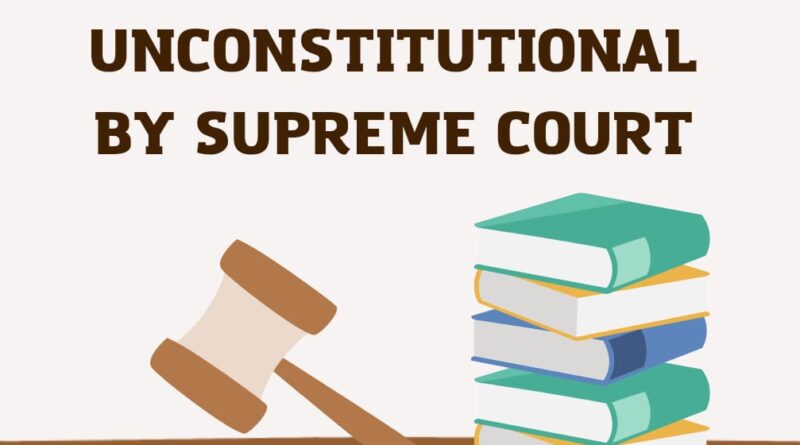Electoral Bonds Declared Unconstitutional By Supreme Court
The Supreme Court has declared the electoral bonds scheme as “unconstitutional,” emphasizing its infringement on the right to information. The scheme, permitting undisclosed corporate contributions to political parties, has been halted by the court. Additionally, the State Bank of India (SBI) has been instructed to cease the issuance of electoral bonds and reveal information regarding the recipients.
This decision, strategically timed before the Lok Sabha elections, is a step towards bolstering transparency in political funding. Notably, the Bharatiya Janata Party (BJP) reportedly received a considerably higher amount of funding through electoral bonds compared to the Congress, sparking concerns over the fairness and transparency of the political financing process. The ruling underscores the judiciary’s commitment to ensuring a level playing field and openness in the electoral system.
In a unanimous judgment led by Chief Justice of India DY Chandrachud, a five-judge Bench declared the electoral bonds scheme and related amendments to various acts as unconstitutional, citing a violation of voters’ right to information under Article 19(1)(a) of the Constitution. The court directed the State Bank of India to cease the issuance of electoral bonds and disclose details of bonds purchased from April 12, 2019, to date to the Election Commission of India. The court highlighted concerns about corruption and undue corporate influence in the electoral process, emphasizing the scheme’s promotion of economic inequality. The judgment underscored the need for a balance between informational privacy and the voters’ right to information. The court dismissed the government’s argument that the scheme aimed to curb black money in elections, stating it wasn’t a reasonable restriction under Article 19(2).
Chief Justice Chandrachud questioned the rationale behind the absolute non-disclosure of political funding sources in the electoral bonds scheme, emphasizing that this provision did not align to curb black or unregulated money. The court deemed Clause 7(4) of the scheme, which exempted information on purchasers of electoral bonds, as unconstitutional, lacking a balance between voters’ right to information and contributors’ informational privacy. The judgment highlighted that the entire electoral bonds scheme depended on the anonymity provided by Clause 7(4), and without it, the scheme would be indistinguishable from other financial contribution methods.
Referring to amendments introduced via the Finance Act 2017, the judgment outlined changes to Section 29C of the Representation of People Act, Section 13A of the Income Tax Act, and Section 182 of the Companies Act. These amendments lifted restrictions on political party disclosures, allowing a complete exemption for contributions through electoral bonds and enabling unlimited and anonymous corporate donations. The court criticized the amendments for being arbitrary and not considering distinctions, such as the higher potential harm of political contributions by loss-making companies. The judgment emphasized the need to strike a balance between privacy and voters’ right to information in political funding





